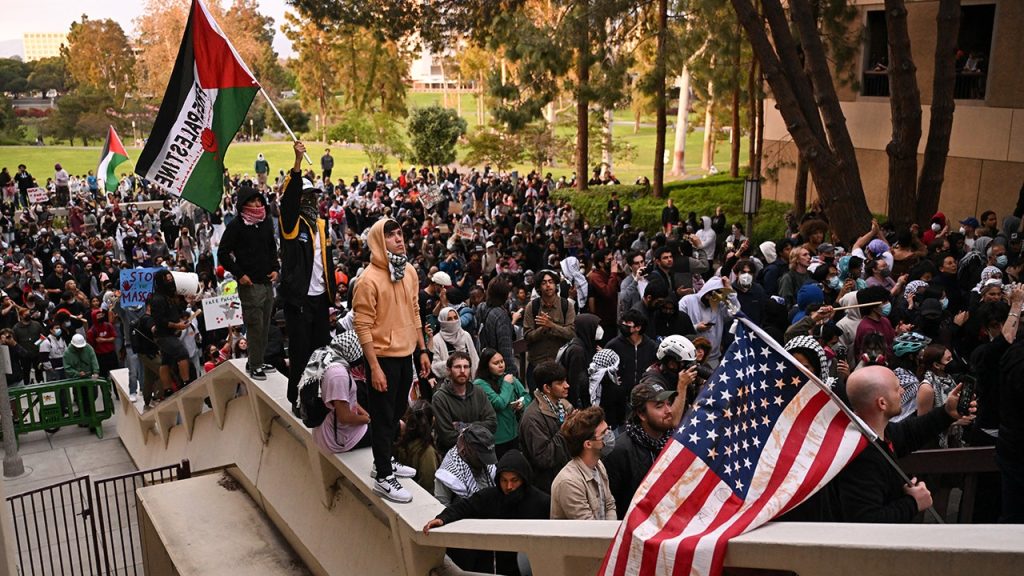At UC Irvine in California, at least 50 people were arrested following a protest by hundreds of anti-Israel demonstrators who swarmed the campus and set up barricades. The university confirmed that those arrested were disrupting university operations and violating state laws. It is unclear whether those arrested were students or not affiliated with the school. The campus moved to remote operations due to the chaos caused by the protests.
According to a spokesperson from UC Irvine, the protesters entered the Physical Sciences Lecture Hall on the campus and began barricading the building, leading to the arrests. The university took action to address the situation and ensure the safety of everyone on campus. The protests are part of a larger pattern of anti-Israel demonstrations on college campuses across the United States.
A network connected to the Chinese Communist Party has been suspected of funding and organizing these anti-Israel protests on various college campuses. This network is well-funded and has been actively involved in promoting anti-Israel sentiment among student groups. The protests at UC Irvine are just one example of the influence and reach of this network.
The university responded by arresting those who were disrupting campus operations and violating university policy. It is important for universities to maintain order and ensure the safety of everyone on campus. The involvement of external networks in funding and organizing these protests raises concerns about foreign influence on college campuses and the impact it may have on students and campus culture.
The protests at UC Irvine highlight the ongoing tensions surrounding the Israeli-Palestinian conflict and the role of outside actors in influencing student activism. It is essential for universities to address these issues and maintain a safe and inclusive environment for all students. The university’s response to the protests reflects the need to uphold campus policies and protect the well-being of the campus community.
This is a developing story, and further updates may shed light on the motives and consequences of the anti-Israel protests at UC Irvine. The university’s actions in response to the protests demonstrate a commitment to maintaining order and addressing disruptions that may arise on campus. The influence of external networks on student activism raises questions about the sources of funding and support for these activities and the impact they may have on campus dynamics.


